Two sides of the same coin: Mentor-Mentee relationships
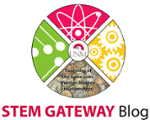 Our goal is to show the benefit to mentor-mentee relationships and how they interaction develops and the contribution it can have on student success.
Our goal is to show the benefit to mentor-mentee relationships and how they interaction develops and the contribution it can have on student success.
Two sides of the same coin
We are excited that our very first Two sides of the same coin: Mentor-Mentee relationships blog post highlights the benefits of mentoring from the perspective of Dr. Diana Northup (Biology) and Matthew Medina (now at the University of Michigan).
(Click HERE for more info on our re-occurring blog topics.)
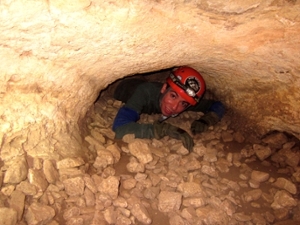
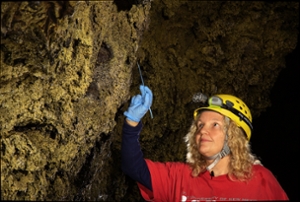
Matthew came to UNM from a smaller community college in Española, New Mexico knowing that he wanted to get research experience because of his long-term goals of going to graduate school in the sciences. He applied, and was accepted into theIMSD program, where the PI of the program,Dr. Maggie Werner-Washburne, suggested that Matthew interview Dr. Diana Northup as a potential mentor, for both the subject matter (microbiology) and mentoring style. Diana has a hands on approach, and her lab known for being a tight knit group of supportive individuals. As she laughed, Diana told me “you are not allowed to be quiet in my lab.”
Being part of a mentoring relationship is beneficial to both the mentor and the mentee. When asked what the most rewarding aspect of such a relation is, Matthew appreciated the level of guidance, both academically, and professionally. “The most rewarding part is having the guidance that I wouldn’t have if I was navigating alone.” From the perspective of the mentor, Diana listed three main rewards: 1) seeing the mentee succeed. Matthew started in a biomedically oriented project that transformed in to a project that looked at microbes that mascarade as minerals, and now has a fully funded fellowship at the University of Michigan in a geomicrobiology lab for graduate school; 2) Seeing the research scientist transformation that occurs over the course of the relationship. There aren’t many undergrads that have the opportunity to go from no research experience to almost publishable data. “Matthew was able to combine biology and geology (geomicrobiology) and ask questions that have implications for life detection on other planets. Seeing that transformation is priceless”; and 3) watching them gain confidence in themselves, especially in relation to their potential as a STEM professional. “They physically carry themselves differently; there is an inner knowledge that they are doing a great job, which is more than just me telling them.”
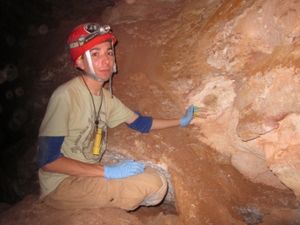
Matthew described his relationship with Diana as very science based. She taught him a lot about every aspect of research, and a substantial amount of microbial ecology. He did mention, however, that she would give him guidance and advice in non-research based areas when needed, too. The “work” associated with this is founded on communication. “I had to make sure I spoke up to her about any trouble in my research to maintain an effective relationship.”
Diana, on the other hand (or side of the coin), listed coaching as the main driver in their relationship. “I like to start people on a path, but I want them to decide which branch they are going to take.” She had Matthew take a class in scanning electron microscopy (SEM), which he took to the next level and expanded in to what he was passionate about. Diana would meet with him every couple of weeks, encouraged him to try new things, discuss what progress was to date, and where he was going from there. She presented the opportunity for him to apply for an undergraduate research award through the NM Geological Society, which he was awarded! Not only was this outside of his primary field of study, but he also wrote most of the grant on his own. “I get to expose my students to new experiences.” Diana took Matthew to Spider Cave, located in Carlsbad Caverns National Park. He had never been to a cave before, and now he had to crawl through small spaces to collect samples from what looked like geologic formations, but turned out to be living organisms! Diana uses her enthusiasm to open doors to new worlds for students. Diana’s motto in mentoring comes down to an acronym she created: CARE – Caring, Acceptance, Relevance, Enthusiasm. This ties in to her idea of the work involved in a mentoring relationship: Empathy. “You can’t care too much, or you sometimes won’t make the right decision for them…occasionally you have to push, even if it’s not your natural inclination to do so.” Diana is often surprised by the stories she hears about non-acceptance, and noted a shift in the student composition in her freshmen class (~ ½ non-white) and the seniors (primarily white). “I think part of this shift is acceptance (or lack of) by people they work with.”
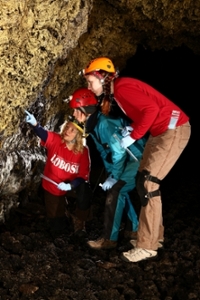 Students – do you want to find a mentor of your own? To get started, Matthew says “don’t be afraid to go to somebody’s office hours to talk to them, even if you are not in their class…many times, I had a fear that they didn’t have time to talk to me, but a I was wrong; they seem to enjoy talking to students who are interested in their research…so put yourself out there and talk to them.” Something else to consider when seeking out a mentor is what you need from them. “This is crucial. You need to think about whether you want a directive, a hands-off, or a middle ground mentor” said Diana. Some faculty are more involved than others. Get the word on the street about your potential mentor. If graduate school is your next goal, does this person have a good track record for publications, especially those with students as the first author? Will they push you to go to meetings and present your research? Do they have traits or attitudes that won’t mesh well with your own? “As a mentee, you need to know about yourself – how well do you take criticism, how self-motivated are you, how self-directed?”
Students – do you want to find a mentor of your own? To get started, Matthew says “don’t be afraid to go to somebody’s office hours to talk to them, even if you are not in their class…many times, I had a fear that they didn’t have time to talk to me, but a I was wrong; they seem to enjoy talking to students who are interested in their research…so put yourself out there and talk to them.” Something else to consider when seeking out a mentor is what you need from them. “This is crucial. You need to think about whether you want a directive, a hands-off, or a middle ground mentor” said Diana. Some faculty are more involved than others. Get the word on the street about your potential mentor. If graduate school is your next goal, does this person have a good track record for publications, especially those with students as the first author? Will they push you to go to meetings and present your research? Do they have traits or attitudes that won’t mesh well with your own? “As a mentee, you need to know about yourself – how well do you take criticism, how self-motivated are you, how self-directed?”
In closing, Matthew reiterated that communication is the key in sustaining a mentoring relationship. “If you encounter a problem, the first thing you should do is talk to your mentor because they give you guidance.” Along these lines, Diana encourages mentors to “be sure you have time to commit to working on the relationship...they require a great deal of care and feeding, sometimes literally…it’s like the Kenny Rogers song ‘the Gambler’” which she paraphrased as “know when to hold, when to play, and when to back away. ”
Want to see Diana in action? She is a guest speaker at this year’s UNM Mentoring Institute Conference – New Perspectives in Mentoring on Friday, October 23 at 1 pm in the SUB ballroom C.
Also, here she is as a TEDxABQ event, speaking about Mentoring HERE
(Photos of Matthew by Diana Northup; Photos of Diana by Kenneth Ingham)
Two sides of the same coin
Our next installment of Two sides of the same coin: Mentor-Mentee relationships blog post highlights the benefits of mentoring from the perspective of Dr. Jeff Brinker and Ayse Muniz.
(Click HERE for more info on our re-occurring blog topics.)
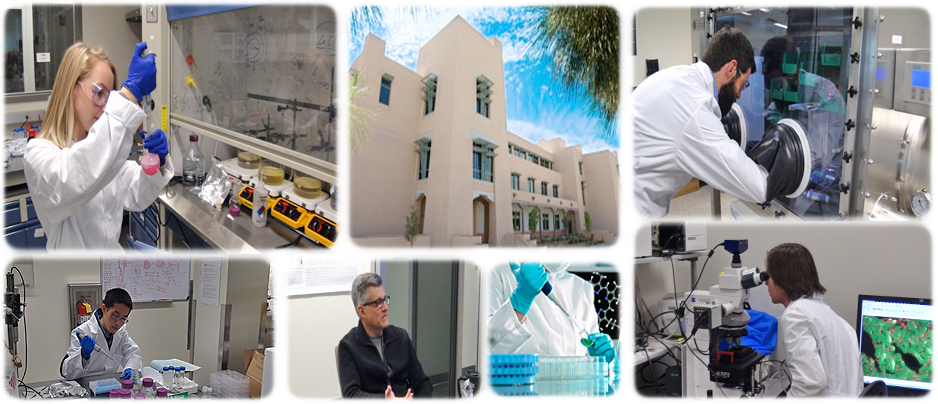
There are various research based mentoring programs on campus, one of which is the Maximizing Access to Research Careers (MARC) Program, which focuses on preparing students for a Ph.D. in the Biomedical Sciences. Ayse Muniz was accepted into this program, and one of her first tasks as a new scholar was to interview potential mentors. She interviewed 4-5 labs. Now that this process is finished, some advice Ayse has for students looking for a mentor is to “know what type of relationship they want. Depending on what stage of the field you are in, you may need more hand-holding on all aspects of the project, or you may want to be more independent. Ask the right questions to know if this is the right person to mentor you.”
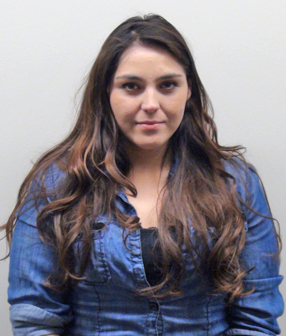
After interviewing Dr. Jeff Brinker, the pair mutually decided Ayse was a good fit for his lab because “he did a good job at selling his research and made it sound relevant to my interests,” and Ayse had previous lab experience which “was an important factor for me, since it takes a lot of time to start somebody from ground zero…she knew what she was doing and competent for being as young as she was; I was impressed by these things.” The dynamics within Dr. Brinker’s lab includes an environment with people ranging from high school all the way through professionals from Sandia, and everything in between. As a result, everyone is expected to act as both a mentor and a mentee to some capacity. Dr. Brinker’s perspective on finding a mentor is to “get a good sense of the dynamics of the group. Do people get along, is it synergetic and respectful at all levels?” as well as providing each individual the opportunity to work on “something you are interested in, otherwise it becomes just work, and I don’t want students to just be here for the credit or to put in the hours, they need to be interested and have a passion for what is being done in the group, or be able to see [how they can contribute].” As a result of these multi-level interactions and peer-mentoring, Ayse suggests not limiting yourself to one mentor, as each may have different things to offer that can help in your success.
Not everything is fun and games, as mentor-mentee relationships take work. “Dr. Brinker knows my skill set in the lab, which enables him to ask me to do [skill appropriate] tasks.” This tied in to a later topic we discussed, where Ayse said that being reciprocally aware of each other’s strengths is important in maintaining this type of relationship. Additionally, “I’m responsible for relaying information about relevant literature related to my particular field, and providing regular updates on the progress of my project” said Ayse. On the flip side (of the coin — pun intended), Dr. Brinker tries to educate all of his mentees, “so an important part is providing them with guidance on how to approach science, what are the big pictures? I try to emphasize the need to work on the right problem, come up with an appropriate approach that is innovative, how to comprehensively test your idea,
integrity, and ethics. I try to use every interaction to convey some new knowledge or advice. It is enjoyable to teach these facets which underlie performing good science.” Dr. Brinker also mentioned that he felt it was his responsibility to introduce Ayse to the world of science; to include her in connections, meetings, conferences, outside of the lab.
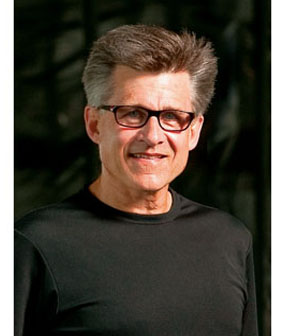
Luckily, it is not all work and no play. Being a mentor has many rewarding aspects. “It’s tremendous when mentees come in and discover new things…students acquire ownership of this [discovery] and become excited” said Dr. Brinker, adding that “you feel somewhat of a parental role, you see them develop under your tutelage.” Having a mentor also has its benefits. Mentors have the ability to put context to the text-book knowledge you gain through your undergraduate course work. “When you first get into a research area, you may not understand the area. You are told ‘we’re working on cancer,’ but don’t know the exact topic they are working on. A mentor can make the connection on the importance of why the research is relevant and the background on how the field came to emerge.”
In closing, we asked both Dr. Brinker and Ayse what advice they had for building and sustaining a mentoring relationship. They both agree that communication is key. “Laying out expectations from day one and having tough conversations along the way is important” said Ayse. She also added that you need to “be respectful of a person’s time. Mentoring takes a lot of work on the mentor’s part, and showing gratitude is important.” Dr. Brinker finds that “having your mentee work on an important problem,” along with having the resources and facilities to work on this problem, are the first and foremost important aspects of maintaining this type of relationship.
Want to learn more about the research in Dr. Brinker's lab, visit their website: http://www.unm.edu/~solgel/
Two sides of the same coin
This week, we spoke with Dr. Julia Stephen and Alfredo Bolanos about various aspects within a mentor-mentee relationship.
(Click HERE for more info on our re-occurring blog topics.)
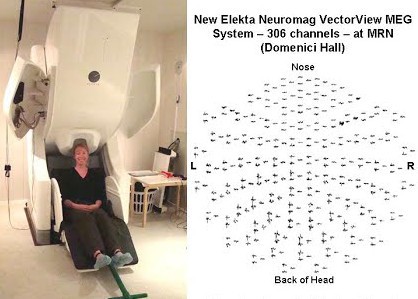

The Post-Baccalaureate Research and Education Program (PREP) at UNM provides students with the opportunity to gain research experience in the biomedical sciences and prepare them for graduate school. They have a pool of researchers interested in being mentors for this program, one of whom is Dr. Julia Stephen with the Mind Research Network. Once Alfredo was admitted to the PREP program, he met with a few mentors within his field of interest. What drew Alfredo to Dr. Stephen was “her overall outlook and teaching style. She seemed nice and humble, which I thought would be a good match for me.”
Finding an enthusiastic mentee, and a mentor that matches your needs can be challenging. So, we asked both Dr. Stephen and Alfredo what advice they have for undergraduates looking for a mentor. The first thing mentioned was to just look for one, go for it, and reach out to individuals who are doing research in the field you are interested in “even if it’s daunting.” Look at the potential mentor’s website (to see what they are doing) and publication list (for their track record, especially if interested in going to grad school). “Contact faculty directly to see if there are opportunities for participating in their lab” said Dr. Stephen. After contacting potential mentors, “go with someone you feel comfortable with, you are going to have a relationship with this person, and they are going to teach you about science, but also help you get to the next level” said Alfredo. Since joining Dr. Stephen’s lab, Alfredo has gained technical experience with programs such as MATLAB, and is more able to answer scientific questions, as a result of the hands-on guidance provided by Dr. Stephen. He is now in the write-up phase of his research, which is a very involved process that requires literature review and “seeing how your results fit in to [what is already published].”
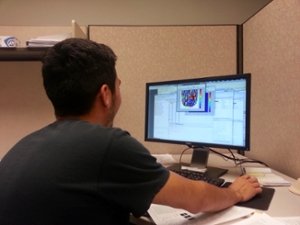
Once you’ve established a connection, Alfredo suggests keeping communication as open as possible. “Even if you think it is something simple that is bothering you, it’s better to have it out there than to hold it in. Even though they are your mentor and have a more knowledge, they are still human.” Dr. Stephen added that it is important to include the mentee in to the research. “It doesn’t matter [what level they are at], they most likely haven’t done this specific type of research. You can always find a piece of research for somebody to work on. This is a way for the student to take ownership of the project, giving them a sense of inclusion, not just a cog in the wheel.”
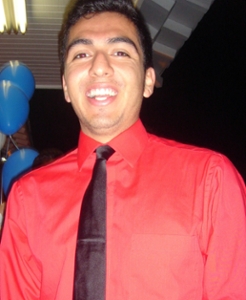
Having a sustainable relationship is rewarding for many reasons. “The mentors have more resources than you do, so they can help you work through your problems” said Alfredo. From the mentors perspective, “seeing success and development of the individual. Being able to see the transition from the initial frustration to the excitement and ownership of a project is great to see!” Along with that comes an ownership of the project, a much deeper appreciation for the research, but with respect to the work and the subtleties, and an understanding that mistakes are OK, they are part of the research process. We do what we can with the mistakes, as long as they are honest mistakes, and we move forward.
Dr. Stephen and Alfredo’s mentor-mentee relationship consisted of Alfredo’s work on various projects within Dr. Stephen’s lab. Dr. Stephen proudly stated that “he’s become a fellow lab member over the past year, working with us on his project, but also with others on smaller side projects. He is integrated like a graduate student with the lab.” To accomplish this integration, Alfredo finds that communication is key. “This lets me do work on my own, as well as keep [Dr. Stephen] in the loop of what I’m doing.” He added that this relationship extends beyond the lab and this type of relationship is always growing, “either one or the other of us has new knowledge, experience, and skills, so it’s about planning ahead to the next step.”
Two sides of the same coin
Why involve yourself in a mentor-mentee relationship? Here is what Dr. Sally Davis and Courtney Thornton have to say.
(Click HERE for more info on our re-occurring blog topics.)

The mentoring relationship between Dr. Davis and Courtney began with Courtney’s acceptance into the Undergraduate Pipeline Network Program (UPN), run out of the Health Sciences Center this past summer. They were matched up as a result of basic interests when Courtney expressed a desire to do community research at the Prevention Research Center.
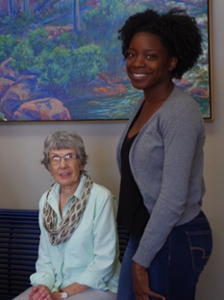 The main characteristic of their relationship is communication. Courtney said, “I ask [Dr. Davis] questions…she is somebody I can talk to and go to for support if I need it.” Their main modes of communication are email, staff meetings, and regular check-ins. The mentor has the added task, said Dr. Davis, of “keeping the mentee on track--make sure they are enjoying what they are doing and are not struggling.”
The main characteristic of their relationship is communication. Courtney said, “I ask [Dr. Davis] questions…she is somebody I can talk to and go to for support if I need it.” Their main modes of communication are email, staff meetings, and regular check-ins. The mentor has the added task, said Dr. Davis, of “keeping the mentee on track--make sure they are enjoying what they are doing and are not struggling.”
A mentor-mentee relationship is “very rewarding; we work as a team.” Dr. Davis could not stop gloating about Courtney and the growth she saw within Courtney over the course of the summer: “I didn’t know where her specific passion would be in her first week, but when Courtney went out to the middle school we work with, she spent time with them…and by the end of the summer she was so self-confident and excited about her project.” Courtney benefited from seeing the rural New Mexico communities she was working to improve. When someone else within the program told Dr. Davis of being “surprised at the level of research vocabulary, ease, and competence” Courtney displayed, Dr. Davis was “just floating, because that is such a compliment.”
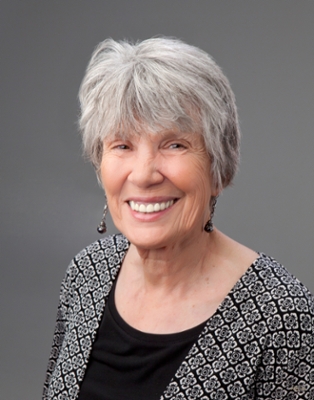
Are you interested in being part of a mentoring team? Courtney suggests you “find somebody that is approachable and works in the area you are interested in--and is willing to help and wants you to succeed.” Use online resources to find out as much information about your potential mentor as you can prior to your first contact. Dr. Davis advises mentees to “have flexibility, know that you may have to change some of your expectations when you get into the relationship about how much a mentor can do, and expect that the mentor won’t have a whole lot of time. We do our best, we really love having students, but we also have other duties to juggle.”
Mentor-mentee relationships are long term; they don’t end when the student leaves the lab or department. Once you are in a mentor-mentee relationship, it is important for the mentee to “ask questions when you have them, don’t be afraid to ask them, and make sure to check in on a regular basis.” For the mentors, Dr. Davis suggests “getting to know your mentee, spend time at the beginning getting to know their expectations, interests, and previous experience.” It is important that the mentor create opportunities for mentees to present their work, which is “one of the most valuable learning experiences [a mentee] can have. It’s really different to be able to articulate your research and answer questions than to write an abstract or put together a poster.”
Two sides of the same coin
The excitement and joy associated with being on a mentor team was clearly discernable in this week’s pair: Dr. Matthew Campen and Lauren Heine.
(Click HERE for more info on our re-occurring blog topics.)
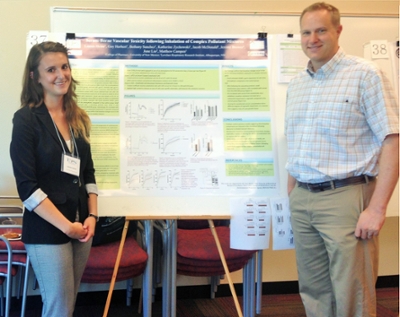
A key to their successful relationship was their open communication. “The hardest part for me is not to use jargonistic language and find a common ground where we could talk on an even level so [Lauren] would understand. Other than that, I don’t think there was much work to it” said Dr. Campen. From Lauren’s perspective, outside reading was also a large component of this relationship, so she understood the context of her research. Lauren’s research culminated in a poster presentation, which she “practiced over and over so I was prepared by the time the symposium came around.”
Tied to this, the relationship between Dr. Campen and Lauren can be summarized in a few ways. Lauren stated “I don’t know if nurturing is the right term, but he was patient, had a good understanding of my education level, and the gap in my understanding of what he does and what I know from my classes. He made sure I knew exactly what was going on in the lab so I understood what I was doing and how important the work we did was.” Dr. Campen agreed, adding that from his perspective, he was “mostly involved with talking with her on how to design studies, interpret the results, and what the data really meant.”
Being part of a mentor team is highly rewarding, for both parties. “Seeing somebody come in to the lab and contribute meaningfully to the lab is great. Also seeing that Lauren learns a lot and has a sense of productivity and accomplishment, is great... showing her that she can walk in to a lab that is doing nationally recognized research and be a part of that, and that it is a viable career path and opportunity if she wants to put the effort into graduate school” reflected Dr. Campen. Lauren’s response closely reflected this, but she added that “I think the most rewarding aspects of having a mentor is the opportunity of working with somebody who is an expert in their field, they are very knowledgeable and am able to learn very specific things that I wouldn’t be able to do in my undergraduate course work. Mentors when they teach you instill this confidence in your, so you might be more confident when you go out in to the field when looking for a job because you get used to how things run and what to do to better prepare yourself.”
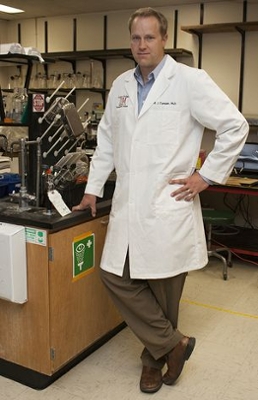 But, let’s take a step back. We can see the benefits of being in a mentoring relationship, but how do you get to that point? For Lauren, she was accepted in to the Undergraduate Pipeline Network Program (UPN), ran out of the Health Science Center, this past summer, where she was matched with Dr. Campen based on their work ethics. This is not, however, the only way to become involved in such a partnership. From her experience, Lauren suggests that a student looking for a mentor should “not be afraid, and get out there. The experience is so rewarding. Don’t be scared or intimidated, you’ll eventually catch on to what they are talking about.” Dr. Campen added that “there are a lot of mentors looking for good students. Think of your mentor as a customer that you want to keep happy, but at the same time, it’s a two way street and they should provide you with an opportunity and resources necessary to make that happen.”
But, let’s take a step back. We can see the benefits of being in a mentoring relationship, but how do you get to that point? For Lauren, she was accepted in to the Undergraduate Pipeline Network Program (UPN), ran out of the Health Science Center, this past summer, where she was matched with Dr. Campen based on their work ethics. This is not, however, the only way to become involved in such a partnership. From her experience, Lauren suggests that a student looking for a mentor should “not be afraid, and get out there. The experience is so rewarding. Don’t be scared or intimidated, you’ll eventually catch on to what they are talking about.” Dr. Campen added that “there are a lot of mentors looking for good students. Think of your mentor as a customer that you want to keep happy, but at the same time, it’s a two way street and they should provide you with an opportunity and resources necessary to make that happen.”
Once communications have begun it is important to build and sustain this mentoring relationship. Mentors should “be patient, try to appreciate that undergraduates have a different education background history at this point… putting out effort in making sure there is a good study that can be easily done in the course of a couple months, do your homework, have the personnel there, more on the practical side.” And, the mentee should not be afraid to ask questions or approach their mentor. “Even students in our group were afraid to talk to their mentors, so they would sit around or didn’t have something to do because they didn’t want to ‘bother’ their mentor, but they are there to help and teach them. Dr. Campen was always very patient and encouraged me to go ask questions. He appreciated I asked questions because he knew I cared about the work I was doing as well.”
The long and short: get out there, don’t be afraid, and keep communication open.
Two sides of the same coin
This weeks post features multiple mentor-mentee pairs within the STEM Gateway/STEM UP Freshmen STEM Project.
(Click HERE for more info on our re-occurring blog topics.)
The Freshman STEM Project (FSP) combines mentoring by professional scientists and engineers from Sandia National Laboratories, success coaching, and math support by Student Education Leaders (SELs). Students in the FSP meet monthly to learn more about the careers, pathways and interests of their professional mentors and also meet with SELS and other FSP students. The students typically meet in small groups with their mentors, other students, and SELs. During these meetings there is also guided discussion between the students and their mentors to help develop skills needed for academic success. The following is an interview with two professional mentors and two students about their experience with professional mentoring in the FSP during the 2015-16 schoolyear.
Please describe how you became interested in the professional mentoring opportunity with the Freshman STEM Project.
[Mrs. Jan Williams – Mentor] I have been involved in a lot of outreach as well as mentoring some of the folks I hired at Sandia, but have never been involved in a mentoring program per se. I saw a notice in Sandia’s internal Daily News and thought this would be a good way to connect with students without making an overwhelming commitment of time.
[Dr. Rob Kittinger – Mentor] I’m passionate about science and the STEM fields and I’ve always been interested in mentoring students so when I was presented with the idea by a friend and fellow Sandian (Kenny Armijo) I jumped at the opportunity to get involved as a professional STEM mentor at UNM.
[Ms. Carolina Gomez - Student] Prior to the beginning of the Fall semester, I received an email regarding the Freshman STEM Project and was interested because I didn't have very much experience related to the degree field I was going into. Participating in my high school's mentorship program proved to be really beneficial for learning about other career fields, so I felt that the Freshman STEM Project would be a great opportunity for insight too.
[Mr. Jesse Valencia - Student] I became interested in the Freshman STEM Project after receiving emails about the program.
Please summarize your relationship with your mentees (or mentors).
[Williams] The advantage of the group setting for mentoring has been that I’ve gotten to know the students in my own group as well as those from other groups. This kind of mentoring lends a certain benefit from just being there as a role model as much as imparting advice. Students need to not only hear from people in the workplace, they also need to see what it means to be a professional in the workplace. And they need to see diversity among those professionals. People who look like them and who started out like they did, as well as people who aren’t like them at all.
[Kittinger] I primarily meet with my mentees once a month during group activities hosted by STEM UP [STEM Gateway] on campus. In addition to this, I’ve attended special events with them (the Calculus musical), written my mentees emails, reviewed their resumes, and passed their resumes onto my professional contacts to try and help them get their dream internships.
[Gomez] We meet once a month in a group setting and are usually given a few topics to guide our discussion (such as social support, study habits, career-search tips, etc). Our mentors share their advice and also listen to what each of us has to say and any concerns we may have.
[Valencia] I would describe my relationship with my mentor as a less formal teacher and student relationship. Rather than just listening for information, I learn through conversations about mutual experiences.
Please describe the most rewarding aspects of the mentoring relationship.
[Williams] As a mentor I gain a special pleasure being around young people who are talented, motivated, and are living the realization of their dreams, but of course are also experiencing the anxiety, self-doubt, and difficulties that come with slogging through a STEM curriculum. I find it rejuvenating and stimulating on many levels – intellectually, emotionally, and socially. I can’t speak specifically for the students, but naturally I hope that they learn from us mentors that a STEM curriculum is hard, but worth it; that having difficulty is part of the journey; and that there are many rewards for their perseverance. Among those rewards are economic stability; stimulating, creative work; and the ability to contribute to society in a way that uses their incredible and unique talents.
[Kittinger] I believe that we should give back to our communities, and this is one small way for me to do that. The Albuquerque community has given so much to me and my family; my wife is a PhD student at UNM; we are both employed at Sandia; our local church encourages us – It just feels great to give back and be a part of this amazing community of people. You get to see a lot of smiles while mentoring and it’s fun. The most rewarding aspect of being a mentor has to be watching the STEM students grow. They were all really smart on day one, but as a mentor you’re able to broaden their possibilities by showing them opportunities they were not aware of, by introducing them to key people, and elevating their expectations. As time goes on, you see them growing in professionalism and exploring new possibilities.
[Gomez] Insight into the inner-workings of STEM career fields and the opportunity to hear the mentors' first hand experiences in their career and the valuable lessons they've learned through these experiences. It's a great feeling to have people that want you to succeed academically and professionally and who are there to support and help you achieve your goals.
[Valencia] From my mentor, I have learned important professional tips such as résumé building tips and the best ways to network. I have also learned important study and work habits that helped my mentor succeed in college, along with the steps I can take now to make applying for graduate school much easier. The first year of college is a lot to take in and I was really overwhelmed at what I should do to make the most of my first year. Having a mentor helped to relieve this pressure and I have been informed about important opportunities that I surely would have missed out on without their experience.
Please describe any drawbacks of the mentoring relationship.
[Williams] The only drawback for me has been the frustration of being unavailable for some of the sessions that were planned due to business travel. I think I have avoided this kind of time commitment in the past because of this. But I don’t believe I would change my decision based on this. I am happy to have participated.
[Kittinger] As humans we occasionally let each other down. We have certain expectations, and they don’t happen. I’ve provided good advice to a student that wasn’t followed. I’ve reached out to other professionals for help on behalf of my mentees, and the professionals have dropped the ball. I’ve been sick and missed one of the group meetings with my STEM mentees – and that was disappointing. There’s risk in every relationship but being a mentor is worth it.
[Gomez] None that I can think of.
[Valencia] The only real drawback to the mentor relationship is availability. Only meeting for an hour and half each month limits the interaction. If the student or mentor misses a meeting then the interaction is hindered and set back even more.
What advice do you have for a student that is looking for a mentor?
[Williams] Some folks might advise finding someone who looks like you and may have had a similar experience. I think that there is also value in having a mentor that isn’t like you. For me, as a younger woman juggling work and kids and marriage, it was valuable to have an older male whose wife had stayed home and raised the kids, and who was actually part of the “good ole’ boy network, because he knew how the system worked and could give me that dose of reality when I needed it. But of course, students much choose carefully. For me, finding a man who had daughters made him more empathetic to what I experienced in the workplace.
[Kittinger] Students who are looking for a mentor should simply think of people they look up to (personally, professionally, or based on financial success). Once they identify a person or two, they should either send them an email or ask them in person if they would be their mentor. If the person says yes, then suggest defining what mentorship will look like. How often will you meet in person, how often will you touch base via a call or email. I suggest you meet once a month minimum. If asking someone is too daunting, ask a career counselor or academic advisor what mentoring groups or services are available to you. The hardest part is just taking that first step. Once you have a mentor, cherish it, and make the most of it.
[Gomez] I think it is important to try to socialize with as many people as possible in the field you are interested in. Ask those around you if they know of someone who (or if they themselves) could mentor you, seek mentorships through school services, and keep your eyes open for opportunities and events provided by your school and student organizations. You never know what might come up!
[Valencia] I would tell the student that they can learn from any professional, not only ones in their particular field. Even though my mentor is in a similar field as me, I learned much more about making my college experience more meaningful by working towards a professional goal instead of just focusing on things such as GPA.
What advice do you have for mentors (or mentees) in building and sustaining a mentoring relationship?
[Williams] Students should not hesitate to reach out to a mentor, even if they just need someone to listen. Mentors realize that they are not there to be the font of all knowledge. They are there to listen and offer support, and help if it is requested. Respect for each other is also important. A mentoring relationship based on mutual respect may well last for decades. Students should keep their expectations realistic. Although a mentor may be useful in helping search for an internship or a job upon graduation, they are not there to relieve students of duties and responsibilities that are theirs – namely, setting their own course and finding their own path. Students should keep in mind that NO ONE has a more vested interest in their career success than they themselves have.
[Kittinger] Mentors, you were chosen because you were successful in life, and that means you probably work really hard all the time. You are balancing many responsibilities with your lives, work, your family, and other volunteer activities. Don’t make mentees competing for time slots on your calendar. Block off whatever time you decide you can give them each month and do your best to always give them that time automatically. This way, when you meet with them, you won’t seem rushed, and you can focus on them. Also, by being a consistent time, you and your mentor are less likely to forget.
[Gomez] Be communicative and meet regularly with your mentor. Don't be afraid to ask questions even if they may seem silly or overly obvious. In my experience the mentors are always happy to answer or questions and provide clarification even about the simplest things to help us learn more about the STEM fields.
[Valencia] I would advise the student to be as available as possible because every conversation and meeting taught me something different to implement in my college lifestyle.
Do you anticipate seeking out additional mentoring relationships in the future? Why or why not?
[Williams] I have years-long relationships with a number of young people I hired a few years ago. I LOVE that they still call me to talk about their career options, or just to catch up personally. So, yes, I’ll continue to seek out mentoring relationships.
[Kittinger] I do. I hope I’m always a mentor and a mentee. While I’m mentoring others, I also have two or three active mentors I regularly meet with at Sandia. I would like to continue being a mentor to students at UNM, but I’d also like to mentor people in other areas I’m passionate about and have expertise – like Technology Start Ups. My greatest mentor challenge yet is on the horizon - I’m expecting my first son to be born in late June. I’m looking forward to taking what I’ve learned while working with a diverse group of different students and other mentees and applying it to being a better dad.
[Gomez] Yes, because mentoring relationships can be very beneficial for helping make big career/academic choices. I believe that as I advance further in my engineering degree I will definitely seek advice from those who have already gone through the steps to graduate and find interesting jobs in order to guide my decision-making.
[Valencia] Yes, I will definitely seek out additional mentoring relationships because these relationships really help to alleviate the stress of preparing for the future. From the mentors experiences I have learned about the most important aspects of preparing for the future now, rather than finding out the information after it is already too late.
